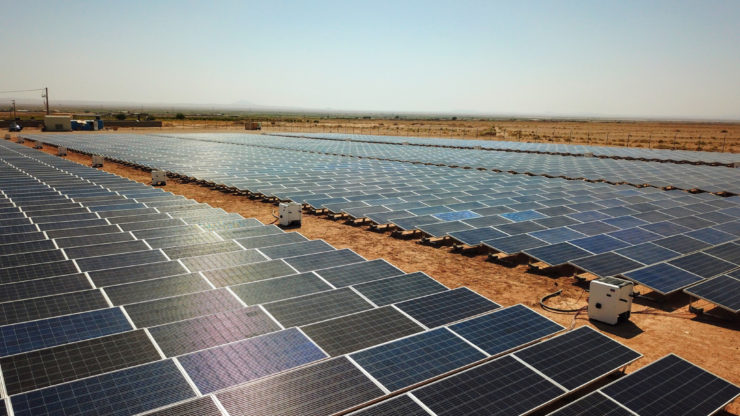
New research project on the collection and recycling of electronic waste from off-grid solar devices
A new research project at the UNEP DTU Partnership will help create better opportunities for collecting and recycling electronic waste from small solar PV systems in Kenya and other African countries
UNEP DTU Partnership, 7 April 2021
Sales of small off-grid solar PV systems have exploded in the last 10-15 years, especially in Africa. In rural areas without access to electricity, these systems are typically used to power everything from mobile chargers and lanterns to radios, televisions and refrigerators.
However, their lifespans are often short, raising concerns about a looming waste crisis. Furthermore, they often contain hazardous substances such as heavy metals, with potentially adverse impacts on human health and the environment.
In Kenya alone, it is estimated that the total amount of electronic waste from solar PV was 4,000 tonnes in 2020, an amount that is expected to increase alongside the continued spread of solar PV in the coming years. Meanwhile, we know little about what happens to solar PV systems after they break down.
Investigating the after-life of off-grid
A new research project at the UNEP DTU Partnership is aiming to change that. The project sets out to investigate the ‘after-life’ of off-grid solar PV devices in Kenya, with a focus on assessing the scale of the problem and identifying ways in which current waste management practices can become more sustainable.
Researchers at the UNEP DTU Partnership are teaming up with leading Kenyan scholars, who contribute to the project with detailed knowledge of the local context and the waste sector. The project also involves researchers from DTU Environment, who have extensive expertise in the design of systems for waste collection and recycling.
Involving the private sector
Suppliers of solar PV systems can play a key role in identifying possible solutions to this waste problem, for example, by designing products that make repairs easier or by introducing systems to collect end-of-life products. For this reason, the project also includes collaborations with a Danish solar PV supplier in Kenya, X-SOLAR, and a local waste recycling firm, Recykla International, which will ensure that the project contributes to providing concrete solutions of relevance to industry.
Moreover, the project includes a partnership with Stena Recycling, one of the largest waste collection companies in Denmark and the Nordic countries, to make sure that the knowledge generated can also inform the handling of solar PV electronic waste in Denmark.
Finally, the project aims to inform the design of national action plans for the management of solar electronic waste in Kenya, which will be facilitated through close cooperation with relevant authorities, including the Kenya Private Sector Alliance (KEPSA). The project will serve as a key source of information on solar electronic waste of relevance for other African countries.
Original article here.